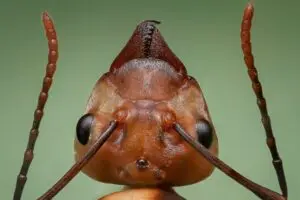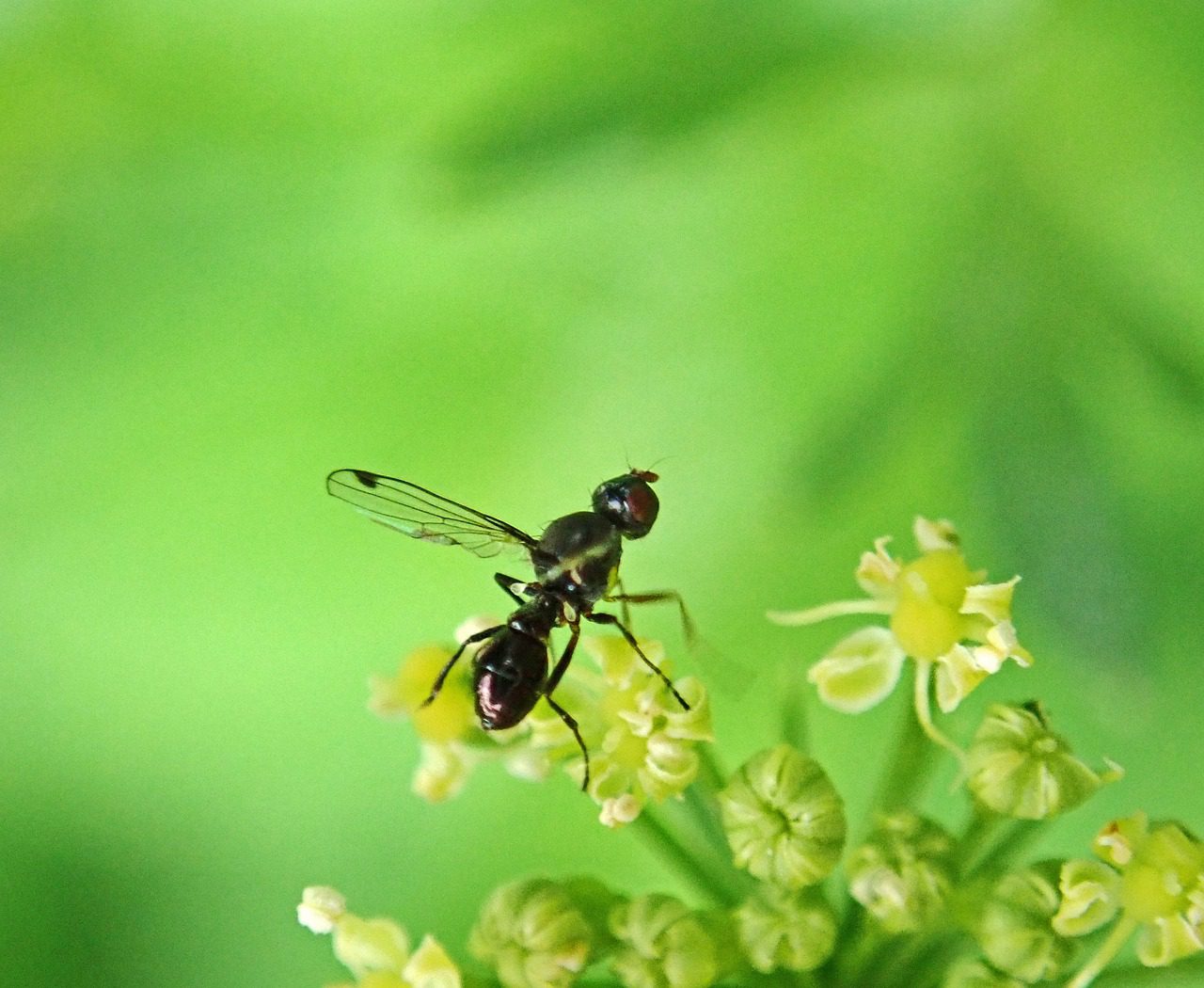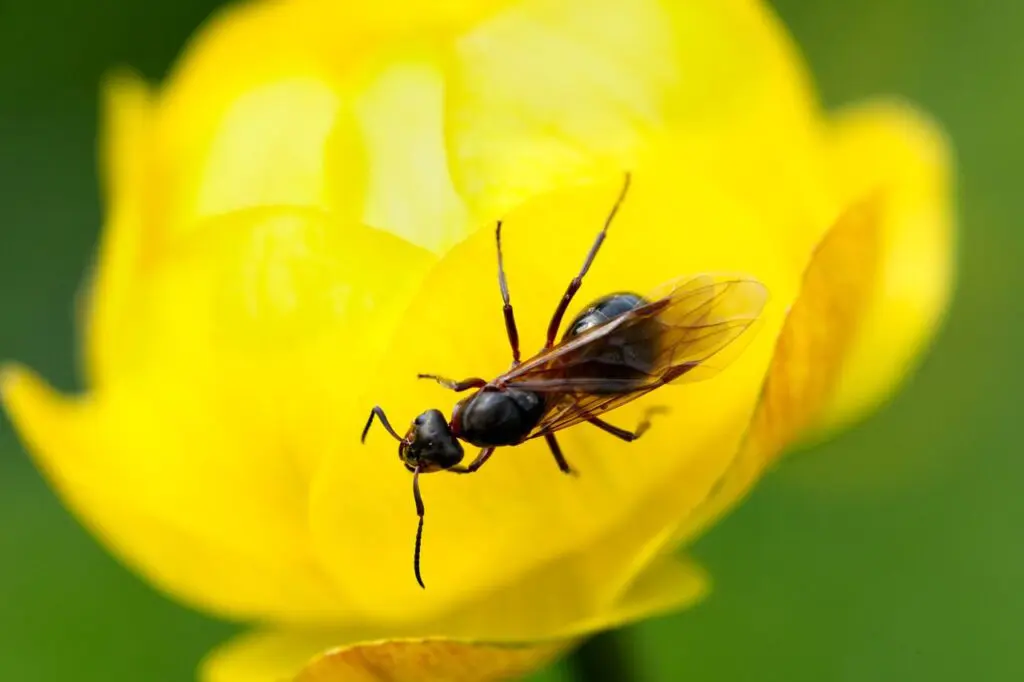

Can ants fly?
Have you ever been sitting at home watching TV only to be disturbed by a large, flying insect you could barely identify? Did this winged creature have an awkwardly elongated body and translucent, long and flimsy wings? You may have seen a flying ant - and if you saw one, you probably saw a few more.
Ants are usually thought of as ground-dwelling insects that run about in search of food and build intricate underground colonies that rival cities. However, not all ants fit this description. Winged ants, which are scientifically referred to as alates, are a unique species or subset of ants that possess wings and are capable of flight. This ability to fly sets them apart from typical worker ants and winged ants actually play an important role in the reproduction and expansion of ant colonies.
At certain times of the year, usually during warm, humid weather conditions, winged ants will emerge from their colonies in swarms. Which is why, if you have seen one, you have seen a lot more.These swarms are known as nuptial flights and consist of male and female winged ants that leave the colony in search of a mate. After mating, the fertilized females, which are known as queens, shed their wings and establish new colonies, while the males perish shortly after.
While winged ants are not as commonly spotted as their wingless brethren, they are present in various parts of the world, including the United States, especially in states with warmer climates such as Florida. Regions like New Jersey also experience winged ant activity during certain times of the year, particularly during the spring and summer months.
It's important to note that if you do spot winged ants, especially in large numbers, you probably have a colony nearby. Therefore, it is important to remain vigilant and take preventive measures to minimize the risk of ant infestations.
If infestations occur, professional pest control services, like Excel Pest Services, offer effective solutions to eliminate ant colonies and prevent future invasions. But are these flying ants actually dangerous? Let’s take a look.
Are Flying Ants Dangerous?
In reality, winged ants are not inherently dangerous to humans however their presence indicates an issue that can lead to potential problems. While the ants don’t pose health risks or cause structural damage to properties like termites, they do indicate that you have an established ant colony nearby. With this in mind, it is vital to address any sightings promptly in order to prevent potential ant infestations.
The issue with winged ants is that they have the potential to establish new colonies once spotted. This is because after mating, the fertilized female winged ants will seek out locations to begin new colonies and if left unchecked, these queens can quickly infest homes, commercial businesses and outdoor areas - leading to nuisance infestations.
Winged ant swarms can also be quite alarming and disruptive, particularly when they occur indoors. Large numbers of winged ants flying around can cause distress and discomfort for occupants and pets. It is also important to note that the presence of winged ants in an indoor environment can also be a sign of underlying moisture issues, which could lead to more significant pest problems if not addressed.
When it comes to winged ants in outdoor environments, swarms can disrupt outdoor activities and gatherings, which is an annoyance to homeowners and businesses alike. Certain species of winged ants are also known to be more aggressive when disturbed, which can, in some cases, lead to bites if individuals come into contact with them.
To mitigate the problems associated with winged ant infestations, proactive pest management measures are vital. This process should include identifying and addressing conducive conditions that attract ants, sealing entry points t, and implementing targeted ant control measures.
Seeking professional pest control services, such as Excel Pest Services, provides effective solutions to manage winged ant infestations and prevent future occurrences.
What Causes Flying Ants in Your House?
Understanding what attracts winged ants to your home will help in preventing an infestation. Winged ants are often drawn to homes by certain environmental factors and conditions that provide conducive breeding grounds and food sources.
One common cause of winged ants in a property is the presence of moisture. Leaking pipes, damp floors or basements, and poorly ventilated areas can create the ideal conditions for ants to thrive and establish colonies. Food sources such as crumbs and improperly stored food can also attract winged ants into your home, as they are foraging for sustenance once they emerge from their colonies.
With this information, preventative measures can be taken to deter winged ants from entering your home.
Begin by addressing any moisture issues. Make sure to fix leaks, improve ventilation, and even use dehumidifiers in damp areas. Make sure to regularly clean and sanitize kitchen surfaces, floors, and food storage areas to eliminate food debris and spills that may attract ants - and other common pests.
Sealing entry points such as gaps around doors and windows can help prevent winged ants from gaining access to your home. Invest in weather stripping to seal cracks and crevices, and consider installing door sweeps to block gaps beneath exterior doors.
Outdoor preventative measures can also be effective in deterring winged ants from approaching your home. Make sure to always trim vegetation away from the exterior walls, and keep outdoor trash cans tightly sealed to minimize food sources for ants.
If winged ants are already present in your home, professional pest control services, like Excel Pest Services, can provide targeted treatment options to eliminate existing infestations and prevent future occurrences. By addressing underlying causes and implementing preventative measures, you can effectively deter winged ants from entering your home.

Flying Ant Control
When faced with a flying ant infestation, prompt and effective control measures are essential to mitigate the nuisance and prevent colony establishment in your residential property or commercial property. Excel Pest Services offers comprehensive solutions to address all your flying ant control needs, ensuring peace of mind and long-term protection against these pests.
Our experienced pest control technicians will conduct a thorough inspection of your property to assess the extent of the flying ant infestation and identify potential entry points. With this information, we develop a customized treatment plan tailored to your specific situation.
One of the key components of our flying ant control approach is targeted treatment methods designed to eliminate existing infestations and prevent future occurrences. We use a combination of environmentally responsible insecticides and innovative techniques to target flying ants where they live and breed, effectively eradicating colonies and minimizing the risk of reinfestation.
Excel Pest Services understands the importance of delivering timely and efficient flying ant control solutions. Contact Excel Pest Services today and trust that your flying ant control needs will be addressed with professionalism, expertise, and care.
Schedule a consultation today.



